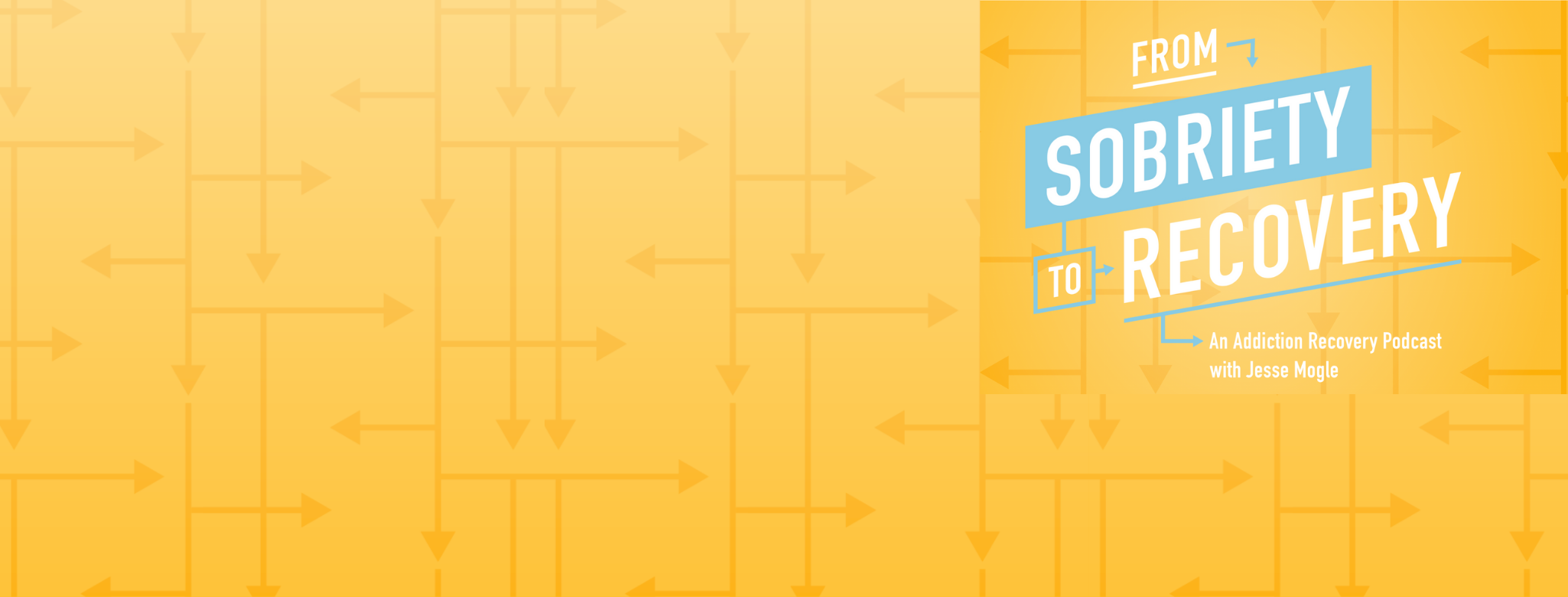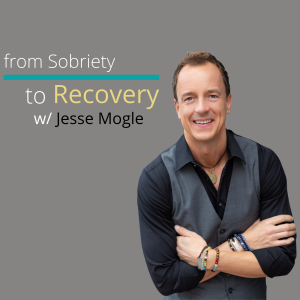

Have you ever looked in the mirror and been disappointed with who’s looking back, or even worse, horrified by who you’ve become? After awakening in his bathtub, practically dead and not sure how to face another day, Jesse decided he didn’t want to die - he wanted to live differently. From that moment on, he decided to figure out how to do just that, live differently, and to become the person who didn't waste his potential.
In 2017, after two decades of battling addiction, Jesse embarked on a life-altering path toward long-term addiction recovery. This podcast delves into the nuances distinguishing sobriety from long-term recovery and how to handle those pesky emotions active addiction helped keep at bay. Jesse shares his personal experience, transitioning from the depths of addiction to a proactive journey of recovery.
Discover the power of a growth mindset, the art of processing and releasing emotions, the significance of nurturing relationships, the importance of self-forgiveness, and building a fulfilling life beyond addiction - through a powerful Neuro-Linguistic Programming lens of life. Jesse’s story is a testament to the transformative power of recovery, providing insights and support for others on their journey.
Join Jesse as he navigates the complex yet rewarding terrain of long-term recovery, featuring real-life stories, expert recovery coaching advice, and a supportive community. This podcast is a beacon of hope and guidance for anyone seeking to turn the page from addiction to a life of purpose and joy.
Episodes

Tuesday Aug 06, 2019
Ask questions because you're not a mind reader, Ep27
Tuesday Aug 06, 2019
Tuesday Aug 06, 2019
No one is a mind reader - regardless of what you, your significant other, friends, or family might think. Ask questions in order to communicate clearly about the wants, needs, and desires of all parties involved.
My therapist loves to remind me to speak concisely. She says, "take out 17 words, then respond." So before you speak, ask yourself - are you performing mental gymnastics to get out of a lie, confrontation, or an otherwise lack of integrity moment? If so - don't. No one wins when you try to convince yourself and others of something you know isn't forthright, true, and integrity-based.
Three keys to not making assumptions:
*1. Ask questions
- Are you a mind reader? Assuming you know what other people are thinking or feeling about you is a limiting thought - and serves no purpose in your personal growth, sobriety, and recovery journey.
- The Best way to not ever have to assume? Just ask the person what it is they meant, said, feel, etc. when you aren't sure.
*2. Listen to the answer
- When we try to read minds we will usually get it wrong. This will lead to misunderstandings, arguments, and many other undesirable consequences.
- Give them the space to give you their answer and the consideration to not interrupt.
*3. Be equally open when they ask you questions so they don't have to assume.
- When we communicate in a way that leaves no room for misunderstanding or interpretation we alleviate any space someone would have to assume.
- Make sure you answer their question clearly and completely, without being cagey, so they also get a clear answer to their questions.
This process could feel very vulnerable.
That's awesome!
In that vulnerability, you will find the healing and recovery, from your past experiences, that led you to not asking questions and assuming when you were using.
Quotes about making assumptions from:
― Miguel Ruiz, The Four Agreements: A Practical Guide to Personal Freedom
“In any kind of relationship we can make the assumption that others know what we think, and we don’t have to say what we want. They are going to do what we want because they know us so well. If they don’t do what we want, what we assume they should do, we feel hurt and think, “How could you do that? You should know.” Again, we make the assumption that the other person knows what we want. A whole drama is created because we make this assumption and then put more assumptions on
top of it.”
- If you assume the other person should know what you want then you are robbing yourselves of the opportunity to bond over the conversation about what you desire from them. Plus, having a manual for how someone is supposed to behave around you and not giving them access to it is just low-integrity and we aren't being that version of ourselves anymore...right?
“Humans are storytellers. It is our nature to make up stories, to interpret everything we perceive. Without awareness, we give our personal power to the story and the story writes itself. With awareness, we recover control of our story. We see we are the authors and if we don't like our story, we change it.”
- Don't assume, which is making up your own story, because then you give up the power that the knowledge of asking would bring you.
“You are no longer responsible for anyone's opinion. You have no need to control anyone, and no one controls you either... You don't need to be right and you don't need to make anyone else wrong...you are no longer afraid of being rejected, and you don't have the need to be accepted...you can walk into the world with your heart completely open, and not be afraid to be hurt.”
― Miguel Ruiz, The Four Agreements: A Practical Guide to Personal Freedom
No comments yet. Be the first to say something!